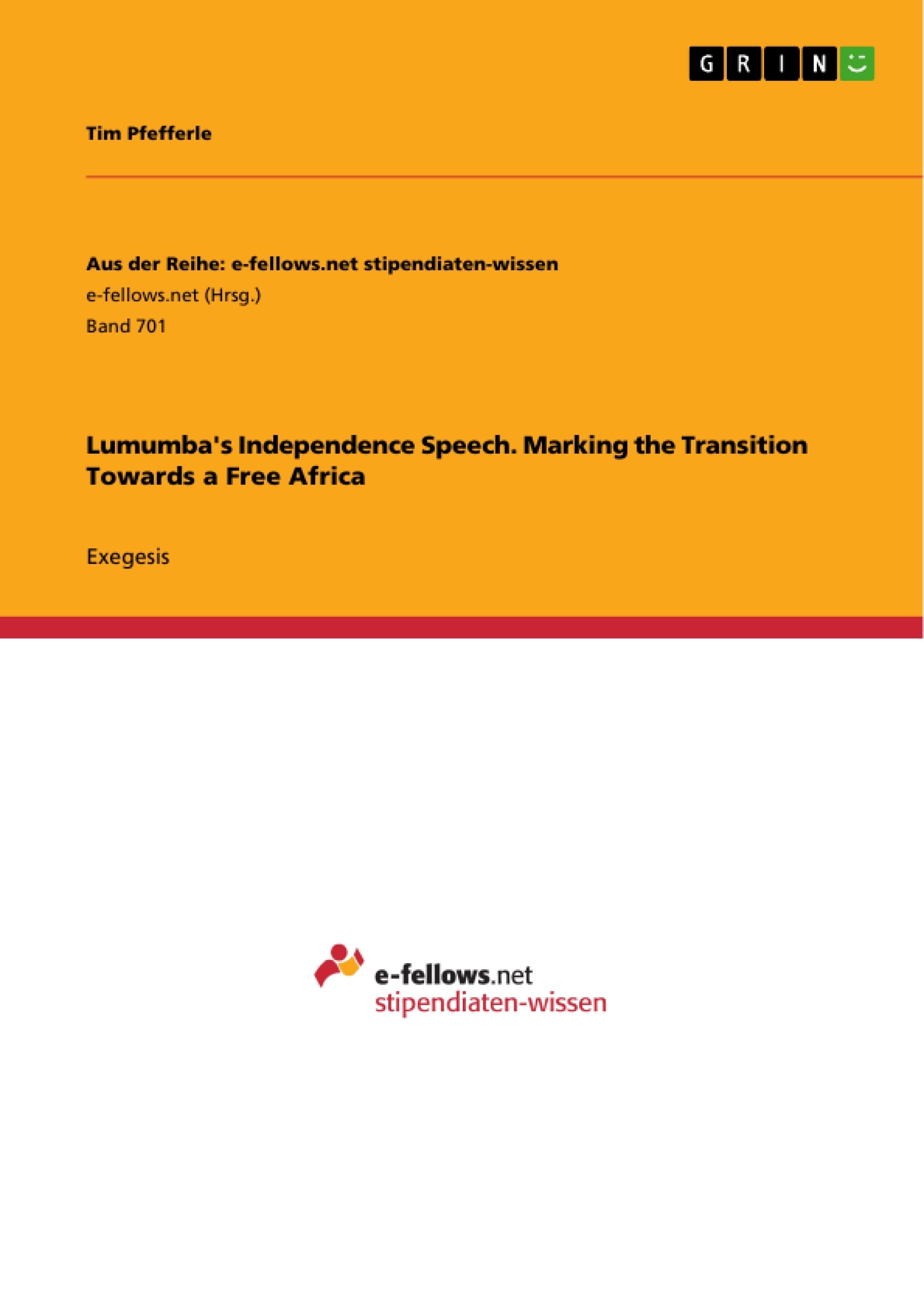An exegesis of Patrice Lumumba's speech on Congolese Independence Day on June 30, 1960. It will deal with aspects of struggle, national cohesion and liberty contained in Lumumba's vision of a new Congo.
Lumumba's Independence Speech. Marking the Transition Towards a Free Africa

Exegesis , 2013 , 10 Pages , Grade: A
Autor:in: Tim Pfefferle (Author)
Excerpt & Details Look inside the ebook

